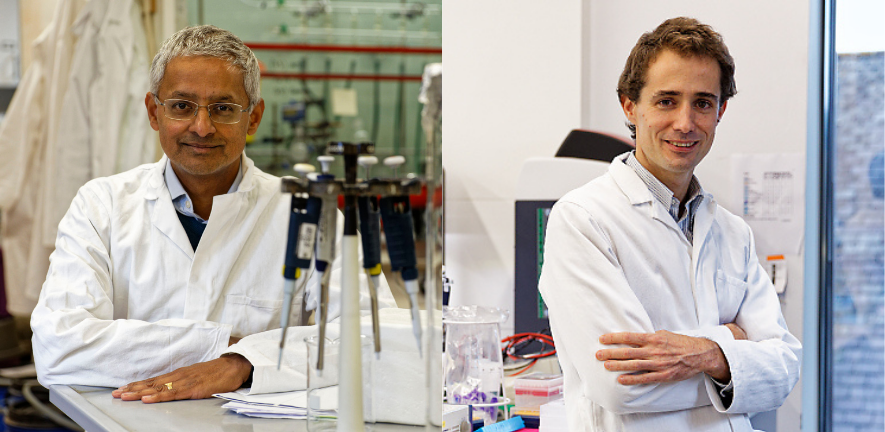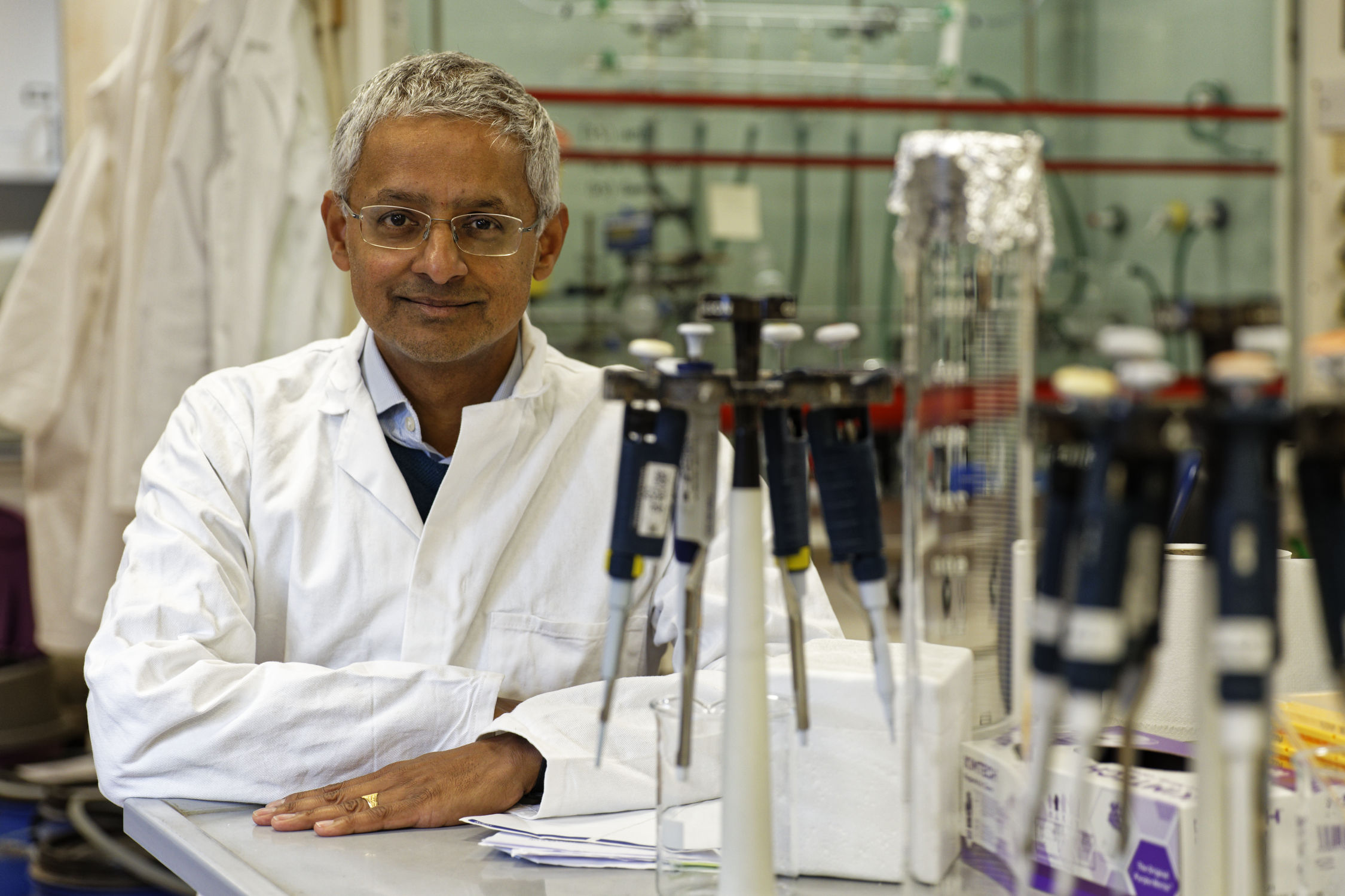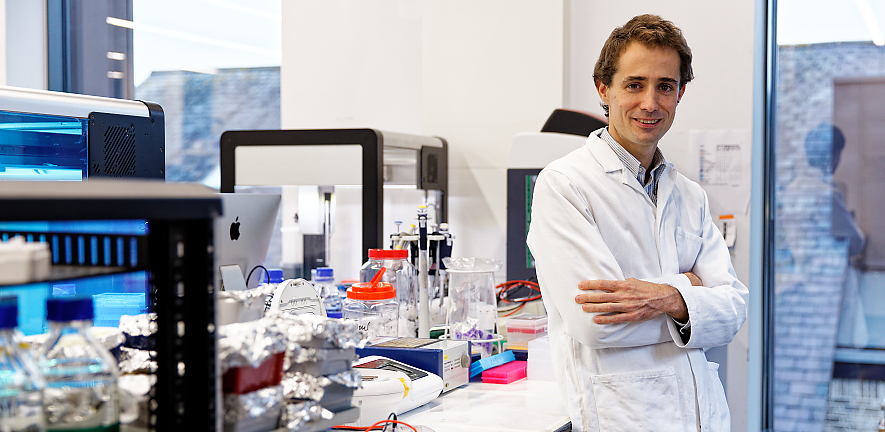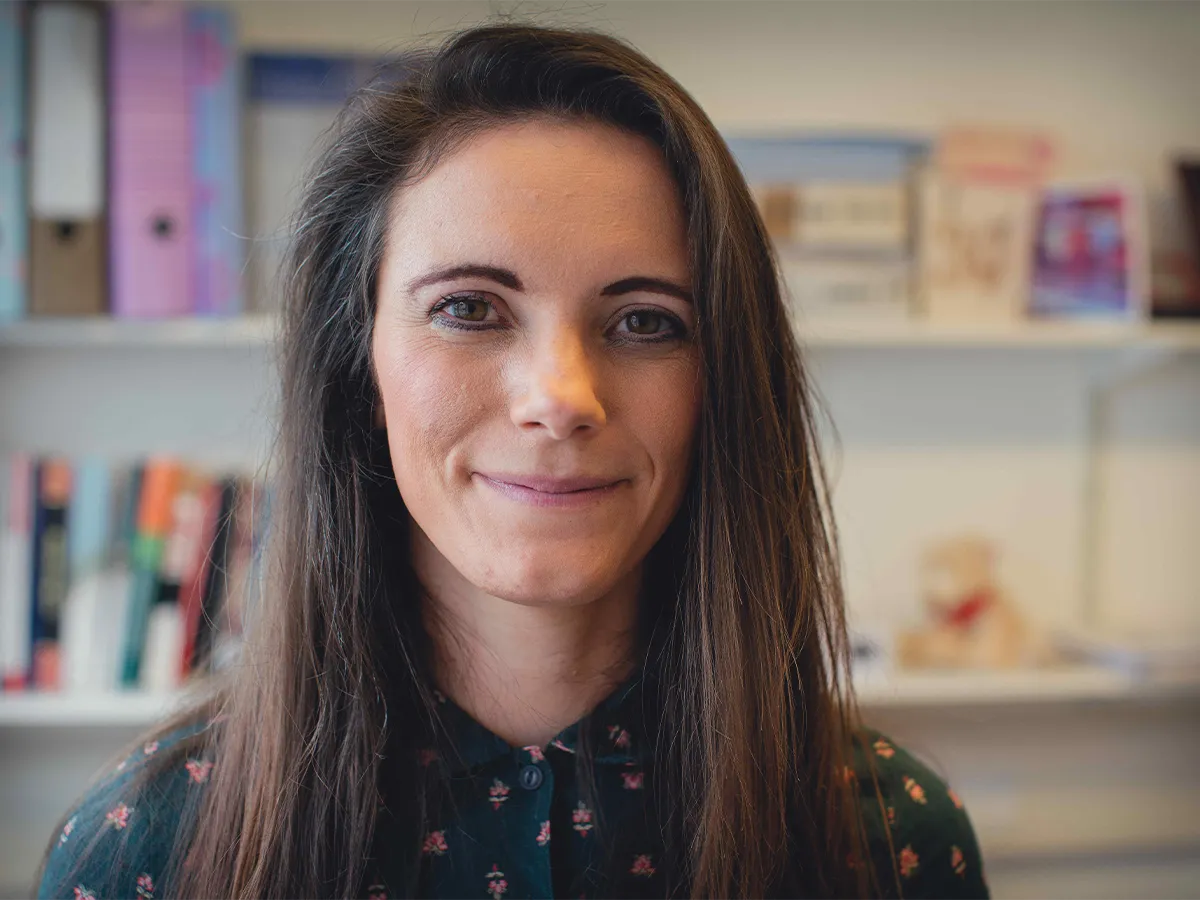
Professor Sir Shankar Balasubramanian has received the Khorana Prize, while Dr Pietro Sormanni has been awarded the Norman Heatley Award, placing them among more than 40 winners recognised in 2025 as part of a programme that celebrates excellence and innovation across the chemical sciences. Each receives a £3,000 prize and a medal in recognition of their achievements.

Professor Balasubramanian is recognised for his groundbreaking and highly influential work exploring the chemistry and chemical biology of nucleic acids. These discoveries are advancing our understanding of cancer and gene regulation, potentially leading to new therapeutic approaches.
His work looks at a specific component of DNA, G-quadruplexes, and his team’s current view is that G-quadruplex formation is often associated with genes that are highly active in cancer. Small, drug-like molecules that selectively bind to G-quadruplex structures have shown promising anticancer activity and have the potential to target a wide range of cancers without the extreme toxicities associated with standard chemotherapies.
Professor Sir Balasubramanian said: “This prize recognises a large body of work carried out by many talented students and postdocs who worked in my lab over the past two decades. I am honoured to receive it on behalf of everyone who has contributed.”

Dr Sormanni’s award acknowledges his trailblazing contributions to the computational design and optimisation of antibodies. His work could accelerate the development of next-generation antibody-based treatments for a wide range of diseases, while also reducing the need for animal testing.
Antibodies are a key component of the body’s molecular defence: they recognise one specific target – such as a virus, a tumour marker, or a toxin – with extraordinary selectivity. Because of this precision, they have become central to medical diagnostics and laboratory research, and are an increasingly important class of life-saving drugs.
Dr Sormanni’s group at the University of Cambridge is pioneering a third-generation alternative: designing antibodies computationally before a single experiment is run. By training artificial-intelligence models on vast, ever-growing databases of antibody sequences and 3D structures, the team can predict designs that will not only latch onto a chosen epitope but also display the biophysical traits needed for therapeutic use, such as high stability, high solubility and low tendency to provoke immune reactions.
Dr Sormanni said: “I am deeply honoured and genuinely humbled to receive the Norman Heatley Early Career Prize. This recognition belongs as much to me as to my research team, collaborators and mentors. It affirms the value of combining physics, chemistry and biology to advance our biomedical capabilities. I hope the award will spotlight the power of multi-disciplinary science and collaboration, and encourage others to pursue bold scientific ideas that can translate to real-world benefit.”
 Professor Rebecca Melen, from Cardiff University, who completed her PhD in the Department of Chemistry at the University of Cambridge in Dominic Wright’s group in 2012, was also awarded a medal in this cohort. She received the 2025 Sir Geoffrey Wilkinson Prize, awarded for her insights into the reactivity of frustrated Lewis pairs via single- and two-electron pathways.
Professor Rebecca Melen, from Cardiff University, who completed her PhD in the Department of Chemistry at the University of Cambridge in Dominic Wright’s group in 2012, was also awarded a medal in this cohort. She received the 2025 Sir Geoffrey Wilkinson Prize, awarded for her insights into the reactivity of frustrated Lewis pairs via single- and two-electron pathways.
This article is based on information provided in the Royal Society of Chemistry press release.

